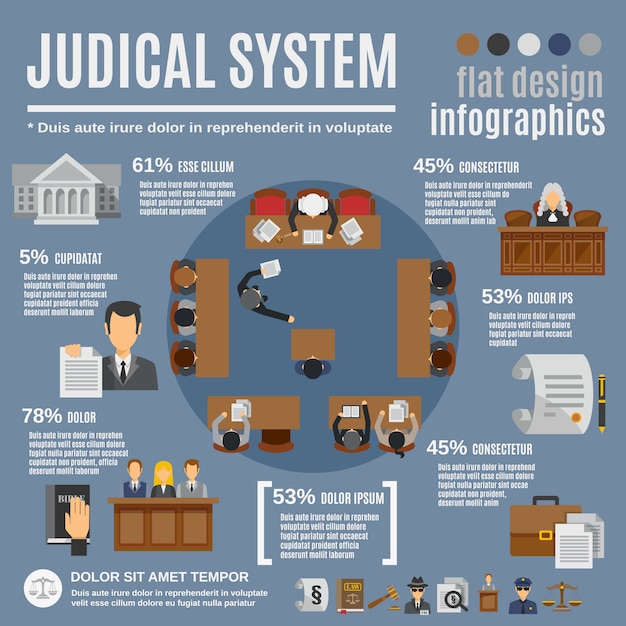Revealing The Inner Operation: Recognizing The Emotional Facets Of White Collar Offenders
Revealing The Inner Operation: Recognizing The Emotional Facets Of White Collar Offenders
Blog Article
Content Composed By-Bray Dahl
Did you know that behind the refined appearance of clerical wrongdoers exists an intricate web of emotional motivations? While several might think that these individuals are driven exclusively by greed, the fact is far more interesting.
Exploring the minds of white collar crooks reveals a remarkable mix of personality type, societal elements, and surprise needs that add to their immoral actions. Comprehending the psychology behind these criminal activities not only clarifies the motivations behind them, however also raises profound concerns regarding our very own susceptability to lure.
So, what makes these people tick? Join us as we check out the captivating globe of white collar crooks and discover the complex functions of their minds.
Motivations for White Collar Crimes
White collar crooks are inspired by numerous factors that drive them to take part in prohibited activities for individual gain.
One of the key inspirations for these people is economic greed. They're willing to damage the legislation in order to build up riches and preserve a lush way of life.
The desire for power and status is one more significant incentive for clerical lawbreakers. They think that participating in illegal tasks will certainly raise their social standing and give them a feeling of dominance and control.
Furthermore, some white collar crooks are inspired by a sense of privilege. They think that they are worthy of greater than what they've and are willing to go across honest limits to accomplish their preferred level of success.
Inevitably, these motivations contribute to the high prevalence of white collar crimes in society.
Mental Characteristics of Clerical Crooks
As we discover the mental qualities of people associated with clerical crimes, it comes to be noticeable that their motivations for taking part in prohibited activities are deeply intertwined with their personality features and state of mind.
Clerical criminals frequently display particular emotional traits that contribute to their involvement in deceitful or deceiving behavior. One such attribute is a heightened feeling of privilege. These individuals often believe that they are entitled to greater than what they have, leading them to take part in unlawful tasks to get wealth or status.
Furthermore, clerical offenders tend to possess a high degree of narcissism. They have an inflated feeling of self-importance, do not have compassion for others, and are driven by a desire for affection and recognition.
Lastly, they usually present a propensity for risk-taking, as they think they can outsmart the system and prevent detection.
Understanding these mental qualities can offer important understandings right into the frame of mind of clerical crooks and aid in the advancement of effective avoidance and intervention strategies.
Societal Impact of White Collar Crimes
The influence of clerical crimes on society is far-reaching and complex. These criminal activities have significant consequences that extend past the individuals straight entailed. Here are 4 ways in which white collar criminal offenses impact culture:
- ** Economic damage **: White collar criminal activities can lead to economic losses for individuals, businesses, and even whole economies. lawyer criminal near me can disrupt markets, undermine capitalist self-confidence, and lead to task losses.
- ** Trust fund erosion **: Clerical criminal activities wear down trust in institutions and individuals. When people witness high-level professionals participating in unlawful activities, it diminishes their faith in the system and can bring about a basic uncertainty towards authority.
- ** Social inequality **: White collar criminal offenses usually target vulnerable people or areas, aggravating existing social inequalities. These crimes can broaden the void between the rich and the bad and bolster systemic injustice.
- ** Legal and governing changes **: White collar criminal activities trigger the application of stricter regulations and regulations. Society frequently replies to these criminal offenses by enacting measures to prevent similar events in the future, making sure better liability and openness.
The societal influence of clerical crimes can not be undervalued, as it affects people, neighborhoods, and the overall fabric of culture.
https://www.politico.com/news/2022/08/15/justice-department-subpoenas-trump-lawyer-eric-herschmann-00051899 , the psychology behind clerical offenders discloses a complex internet of motivations and qualities. These people are driven by greed, power, and a sense of privilege, which can have far-ranging effects for culture.
It is very important to bear in mind that not all criminal offenses are committed by those we may typically associate with criminal habits. As the claiming goes, 'the wolf in lamb's apparel,' advises us to continue to be attentive and doubt the true intentions of those around us.
